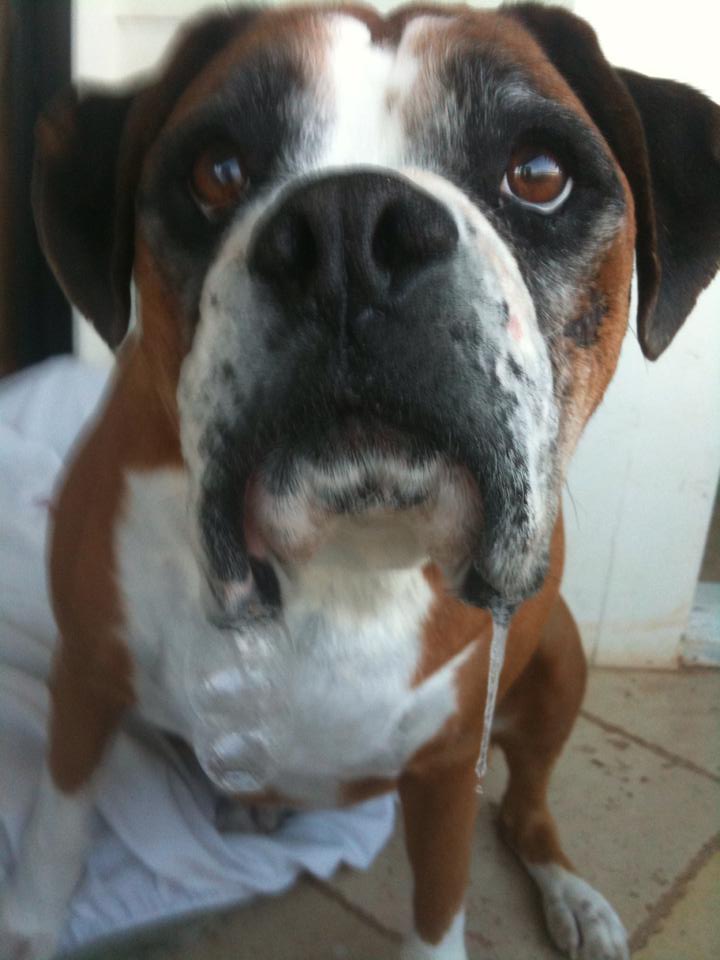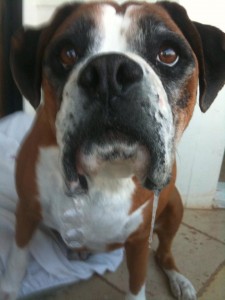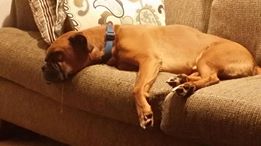

Ptyalism is also known as excessive production of saliva, hypersalvation, or excessive drooling.

I don’t mean the way a boxer drools when you are feeding them, giving them a treat, when it is extremely hot out, or when they are anxious about something. I mean drool as it drips and coats your floors. From time to time my boxer excessively drools and it goes away on its own within 24 hours. Typically I examine his mouth for any human hair between the teeth, lesions, masses, or blood. Then I brush his teeth several times that day. I note any antecedents or things that happened before I noticed the drooling (such as, what he was doing prior, did he swim or was he outside, inside, etc.). For me it usually it subsides within a day (24 hours). If not, I would bring him to the veterinarian for a full examination. Below are possible signs, causes, diagnosis, and treatments.
.
POSSIBLE SIGNS
- Eating behavioral changes (such as anorexia, chewing on one side, unusual position while eating, regurgitation, vomiting)
- Pawing at face or muzzle
- Neurological (seizures)
- Periodontal disease
- Stomatitis (ulceration or inflammation)
- Mass in oral cavity
- Lesions of tongue or oropharynx
- Blood in saliva
- Dysphasia
- Cranial nerve defects
- Salivary gland problems
POSSIBLE CAUSES
- Oral and Pharyngeal Diseases (Foreign body, Neoplasm, Gingivitis, Neurological or functional disorder of the pharynx)
- Neurological Disorders (Rabies, Seizures, Facial Nerve Palsy)
- Drugs and Toxins (household cleaning products or toxic plants, animal venom from widow spiders or north American scorpions, drugs or insecticides)
DIAGNOSIS and TREATMENT
- Watch your dog and note any changes (i.e., dehydration, seizures, etc.)
- Visit your veterinarian to have the dog completely examined
- Must discover the underlying cause and treat that problem
- Laboratory tests (CBC, urinalysis, radiography of oral cavity, biopsy of lesions or masses)
Please share your drooling pictures or drooling stories at [email protected] and go back to www.facebook.com/mydailyboxer and ‘like’ or ‘share’ this article if you felt it was or will be useful information.
Reference: Tilley, Larry P.; Smith Jr., Francis W.K. -The 5 Minute Veterinary Consult, Ptyalism, 1997; 136-137


my 7 yr old female boxer just started this about 3 hours ago. After finding puddles on the hardwood floor, I placed her in her crate. She completely soaked the sleeping pad in her crate. She acts normal otherwise, playful with our GSD and normal appetite.